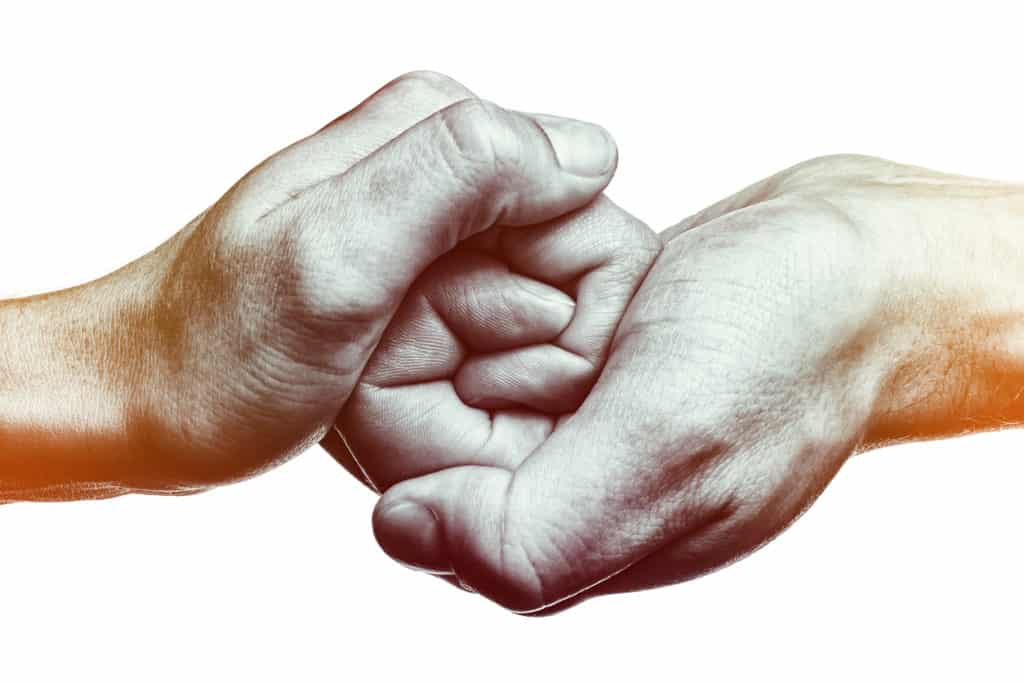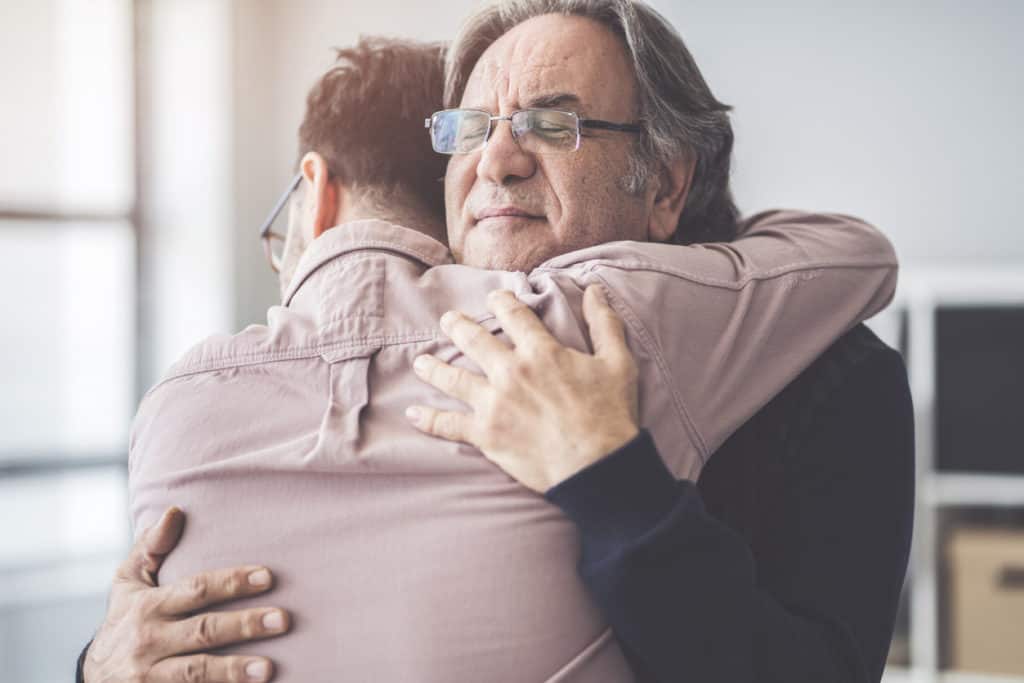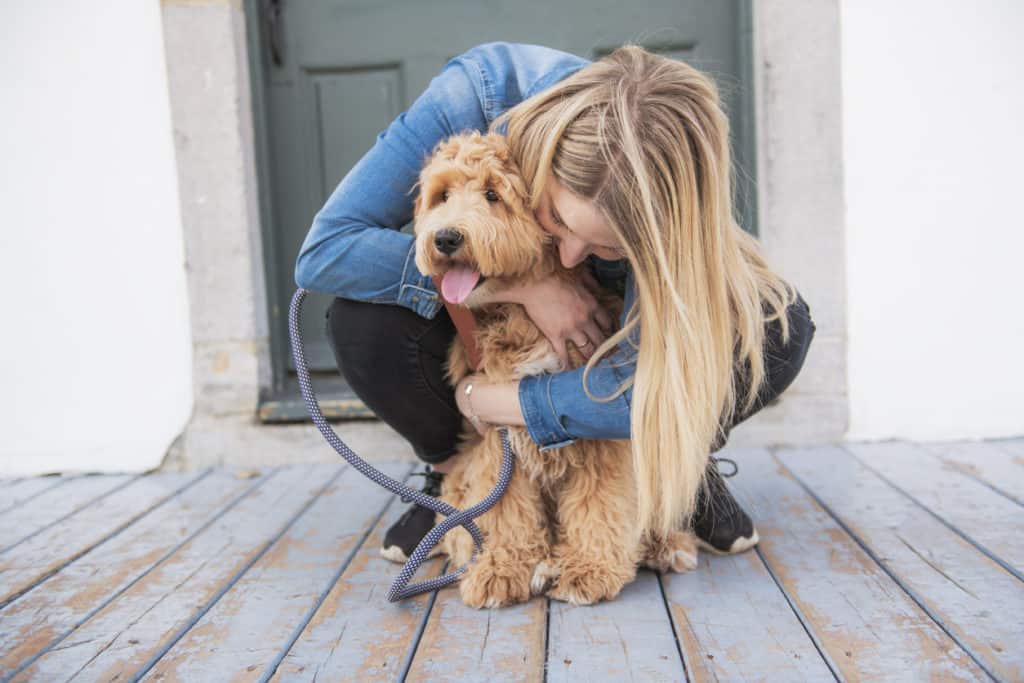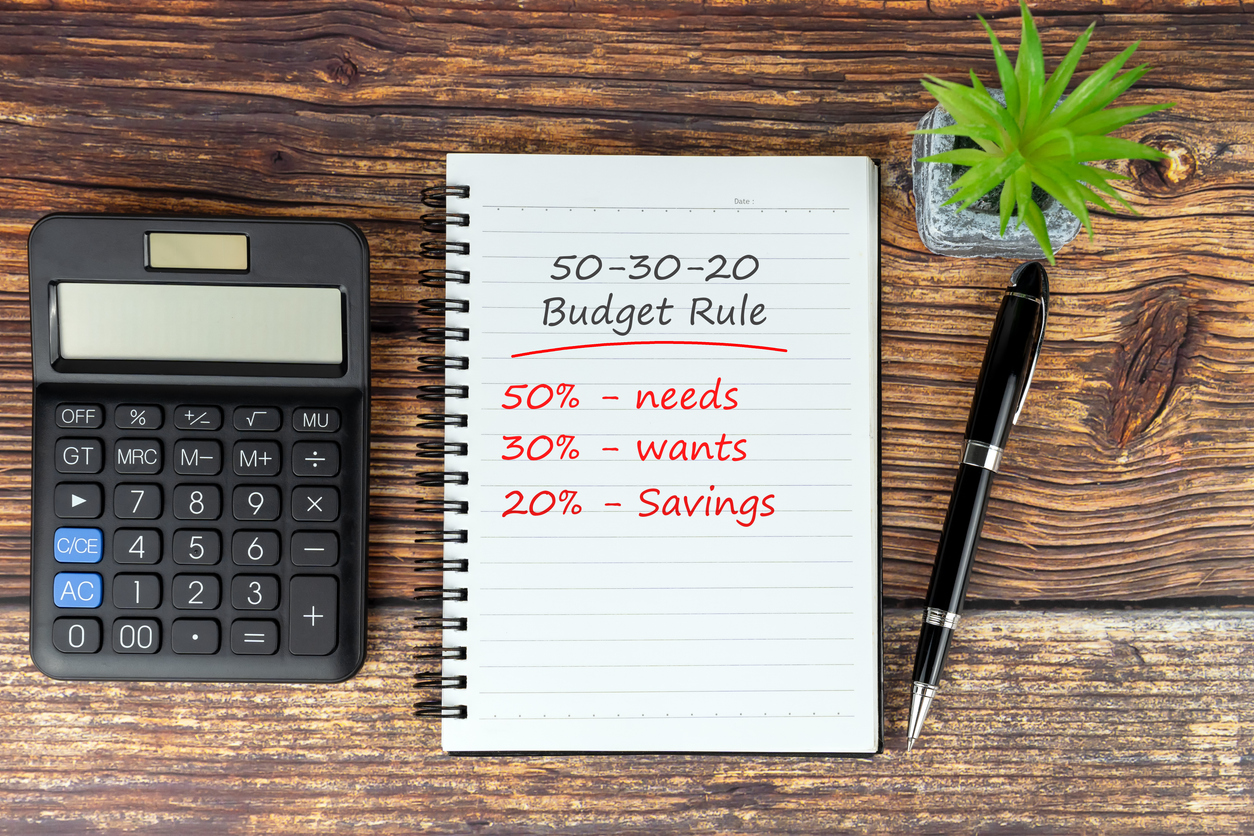Give Me A Hug! The Remarkable Power Of Touch
Living Alone | 10th March 2020 by Michelle Newbold
The power conveyed through a simple touch can be profound. It might be the accidental brush of an arm from a passing stranger, a congratulatory pat on the back from a teammate at your sports club, or a gentle hug from an old friend that you bump into on the street, but that brief close encounter can communicate so many different emotions.

A reassuring arm squeeze or a shoulder hug can strengthen your resolve when you are feeling doubtful, it can soothe your nerves before a job interview, it can strengthen connections and comfort you at a time of great loss and sadness.
Our skin is amazing!
When you take into consideration that our skin is our largest organ, and if you were to stretch your skin out flat on the floor it would measure around two metres in length, it is not hard to understand that something this large is very important to us.
Our skin not only provides a barrier to protect our vital internal organs from harm (and obviously to keep them where they should be), but it also helps to prevent infections and harmful bacteria from entering our body. It is our first line of physical defence.
Skin is teeming with sensors and nerve endings and is the pathway for touch. For our long-term health and well-being, physical connectedness through touch is incredibly important, and you could say touch is just as important to our health as taking in nourishment through food and providing ourselves with shelter and security.
A touch can convey so much
With just one tender hug or hand squeeze, there are so many messages that can be communicated without you ever needing to utter a word.
- I’m proud of you
- You will be fine
- I’m worried too
- You are amazing!
- What’s wrong?
- You can talk to me
Sometimes we don’t need to hear these words to know what that touch means. Often words are not needed anyway and a simple touch can suffice to deliver the intended message and be completely understood.
Our natural skin hunger
Our need for touch is a fundamental part of the human experience. Our skin hungers for the touch of others, so when we exist with this lack of connection we often refer to our experience as being ‘out of touch’ or having ‘lost touch with the world’.
We can often look to different societies around the world and we can define them through their ability or need to touch. The English are known for being quite reserved, so simply shaking hands is encouraged in polite society, but they will often discourage touch beyond this level.
However, in Spain, Italy and other more relaxed Mediterranean countries, the people here kiss and hug each other all the time on greeting and departure. Touching is a big part of their culture. It is what connects them as a family, community and society.
Noted psychologist Sidney Jourard conducted a study where he observed people chatting to each other in cafes in different countries around the world. He found that in the space of an hour, people in Puerto Rico touched each other 180 times on average. In Paris, 110 times. But in Florida, the average dropped to just twice per hour and in London, the sorry average was absolute zero.
Touch hunger is a real thing!
Although we need to be aware of unsafe touch, we must be careful not deprive ourselves of the nurturing, reassuring power of touch that gives us great healing and a sense of connectedness. This is especially important for solos who often lack the regular touch of a permanent life partner.
Our skin hungers for basic human touch. Humans need each other. It has always been this way and it always will be. Human touch nourishes our health, strengthens our relationships and boosts our spirits. To deny human touch will make us vulnerable to ‘touch hunger’, as described by Dr Tiffany Field, Director of the Touch Research Institute at the University of Miami.
According to research, we have nerve endings called C-tactile afferents. These nerve endings solely exist to respond to any type of gentle touch. In a 2017 study, it was found that the ideal rate of touch to stimulate these nerve endings is between 3 and 5 centimetres per second. This is the perfect speed to release oxytocin.
By denying basic human touch, many fundamental human needs will be left unmet. This can negatively impact on our physical, mental and emotional well-being. When under stress the body releases the stress hormone cortisol. Gentle, reassuring touching such as a hug, a pat on the back or a squeeze of the arm can do a lot to reduce stress and lower cortisol levels, allowing the immune system to work properly.

Even a hug can be very powerful
There is great importance in human touch and even dedicated solos need to have the power of platonic touch in our lives. There can be great power hidden in a simple hug that lasts less than 3 seconds. Even guys that may not be ‘traditional huggers’ by nature and may not necessarily trust other men to give them a reassuring hug can feel a lot of benefit from receiving one.
A hug from the right person at the right time can really help to deflate a heated situation and reduce a person’s feeling of anger. Hugs can be very stress-relieving and even when it lasts less than a second it can create a physiological response to stress by lowering blood pressure and cortisol levels. The less stress you carry around, the healthier your heart will be.
We, humans, crave touch. When we are cut off from it, the result is touch isolation. A simple hug can help to restore our confidence, reduce stress, boost our self-esteem and establish strong bonds with others. Hugs can offer something reassuring and personal without it becoming sexual. Hugs can happen between people that are friends, but not lovers – and never will be.

The hidden value of touch
We have therapy dogs going into residential homes visiting residents to allow them to hold, stroke and pet them. This close physical contact has been proven to improve the general health and emotional stability in the elderly. It helps them to feel less lonely in the absence of a partner or through the lack of regular contact with family and loved ones.
There is a powerful level of contact between all living creatures, but especially between human to human contact in the form of touch. With no one touching these elderly people, therapy dogs and pets provide that connectedness that they are missing.
If this isn’t a reason to be open to the power of touch and learn about how you can use it in a life-affirming way, then I don’t know what is! Learning how to give and receive platonic love through touch can be remarkably life-changing. It can enable us to live a rich and full life because, at the end of the day, touch is life. It is the first language we learn as babies and the first sense we develop.
Maintaining your level of touch
Studies have found that the more physical affection we receive during childhood, the rates of violence in adults is lower. Continuing to hug and give platonic or loving touch as adults release Oxytocin in the body.
Known as the ‘cuddle chemical’ oxytocin helps to nurture feelings of trust, happiness and peacefulness. It also helps to reduce cortisol, the stress hormone, within 20 seconds of sustained physical contact.
So even if you are a dedicated singleton without a permanent life partner on hand to give you plenty of hugs, back rubs and massages, you can still benefit from human touch by booking regular aromatherapy massage sessions, Indian head massages or reflexology sessions.
To really make your massage therapy sessions count, you need to make them mindful experiences. Tune into the touch of your therapist and it will help to boost all the things that come from it.
The need for touch never leaves you, so make the most of the hugs you get from your family and friends while they are still around to give them. Believe me, you will miss their touch when it is gone.
GIVE ME A HUG! THE REMARKABLE POWER OF TOUCH
Share this post:
Hear from Solo Living now and then by signing up to our mailing list





















